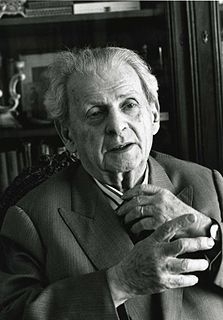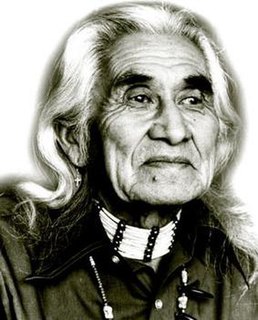A Quote by George Sand
We must love stupid people better than ourselves; are they not the really unfortunate ones of this world? Do not people without taste and without ideal grow constantly weary, rejoicing in nothing, and being quite useless here below?
Related Quotes
How can we satisfy ourselves without going on in infinitum? And, after all, what satisfaction is there in that infinite progression? Let us remember the story of the Indian philosopher and his elephant. It was never more applicable than to the present subject. If the material world rests upon a similar ideal world, this ideal world must rest upon some other; and so on, without end. It were better, therefore, never to look beyond the present material world.
In order to settle down in the quiet of our own being we must learn to be detached from the results of our own activity. We must be content to live without watching ourselves live, to work with expecting immediate reward, to love without an instant satisfaction, and to exist without any special recognition. It is only when we are detached from ourselves that we can be at peace with ourselves.
I will say this quite plainly, what truly human is -and don't be afraid of this word- love. And I mean it even with everything that burdens love or, i could say it better, responsibility is actually love, as Pascal said: 'without concupiscence' [without lust]... love exists without worrying being loved.
You must be respectful and assenting, but without being servile and abject. You must be frank, but without indiscretion, and close, without being costive. You must keep up dignity of character, without the least pride of birth, or rank. You must be gay, within all the bounds of decency and respect; and grave, without the affectation of wisdom, which does not become the age of twenty. You must be essentially secret, without being dark and mysterious. You must be firm, and even bold, but with great seeming modesty.
If love is the soul of Christian existence, it must be at the heart of every other Christian virtue. Thus, for example, justice without love is legalism; faith without love is ideology; hope without love is self-centeredness; forgiveness without love is self-abasement; fortitude without love is recklessness; generosity without love is extravagance; care without love is mere duty; fidelity without love is servitude. Every virtue is an expression of love. No virtue is really a virtue unless it is permeated, or informed, by love.
And yet many of us do it without families," Nynaeve said. "Without love, without passion beyond our own particular interests. So even while we try to guide the world, we separate ourselves from it.We risk arrogance, Egwene. We always assume we know best, but risk making ourselves unable to fathom the people we claim to serve.
The whole trouble lies in that people think that there are conditions excluding the necessity of love in their intercourse with man, but such conditions do not exist. Things may be treated without love; one may chop wood, make bricks, forge iron without love, but one can no more deal with people without love than one can handle bees without care.
All lives are composed of two basic elements," the squirrel said, "purpose and poetry. By being ourselves, squirrel and raven, we fulfill the first requirement, you in flight and I in my tree. But there is poetry in the meanest of lives, and if we leave it unsought we leave ourselves unrealized. A life without food, without shelter, without love, a life lived in the rain—this is nothing beside a life without poetry.
Oscar Wilde quite rightly said, 'All art is useless'. And that may sound as if that means it's something not worth supporting. But if you actually think about it, the things that matter in life are useless. Love is useless. Wine is useless. Art is the love and wine of life. It is the extra, without which life is not worth living.
There aren't many such enthusiasts born. The average person is not especially curious about the world. He is alive, and being somehow obliged to deal with this condition, feels the less effort it requires, the better. Whereas learning about the world is labor, and a great all-consuming one at that. Most people develop quite antithetical talents, in fact - to look without seeing, to listen without hearing, mainly to preserve onself within oneself.







































